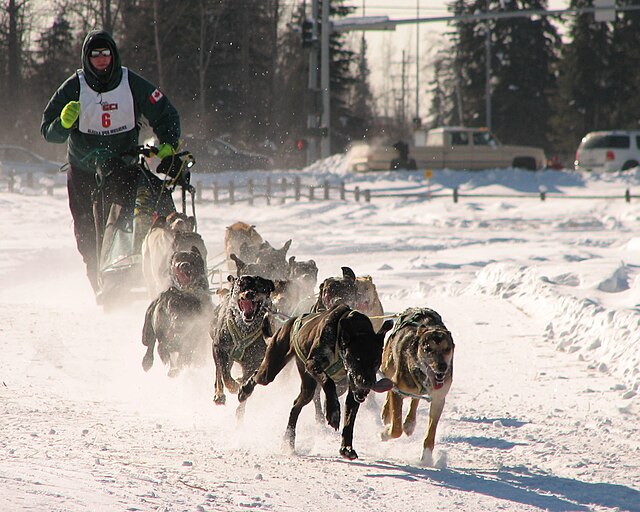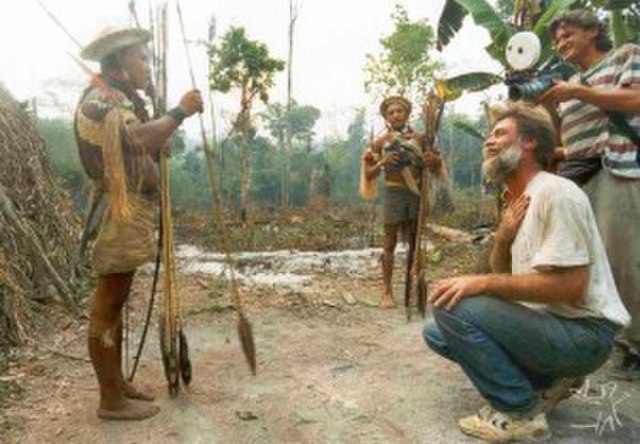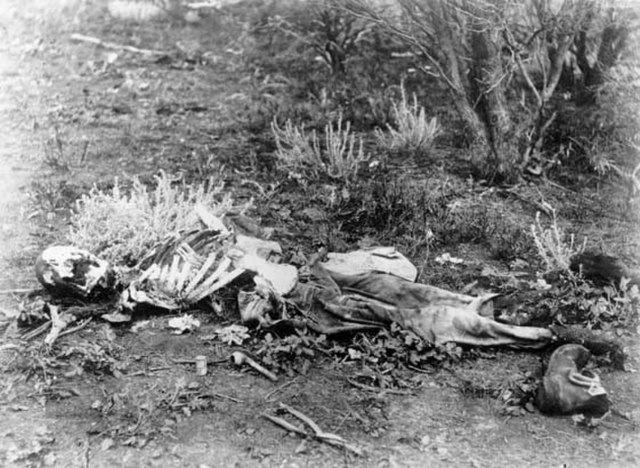Anthrozoology, also known as human–nonhuman-animal studies (HAS), is the subset of ethnobiology that deals with interactions between humans and other animals. It is an interdisciplinary field that overlaps with other disciplines including anthropology, ethnology, medicine, psychology, social work, veterinary medicine, and zoology. A major focus of anthrozoologic research is the quantifying of the positive effects of human–animal relationships on either party and the study of their interactions. It includes scholars from fields such as anthropology, sociology, biology, history and philosophy.
Sled dog racing in Alaska
Anthropology is the scientific study of humanity, concerned with human behavior, human biology, cultures, societies, and linguistics, in both the present and past, including past human species. Social anthropology studies patterns of behavior, while cultural anthropology studies cultural meaning, including norms and values. A portmanteau term sociocultural anthropology is commonly used today. Linguistic anthropology studies how language influences social life. Biological or physical anthropology studies the biological development of humans.
An anthropologist with indigenous American people
Bernardino de Sahagún is considered to be the founder of modern anthropology.
Forensic anthropologists can help identify skeletonized human remains, such as these found lying in scrub in Western Australia, c. 1900–1910.
A Punu tribe mask, Gabon, Central Africa





